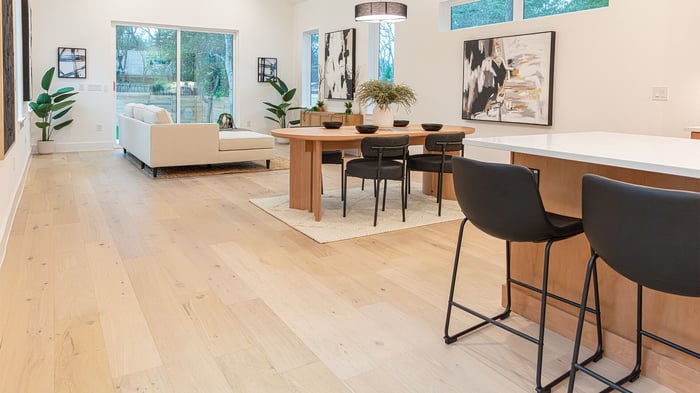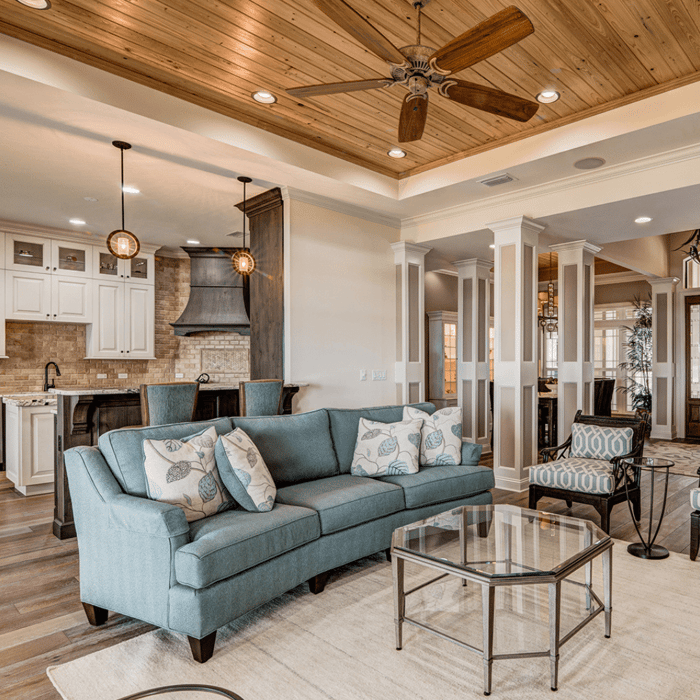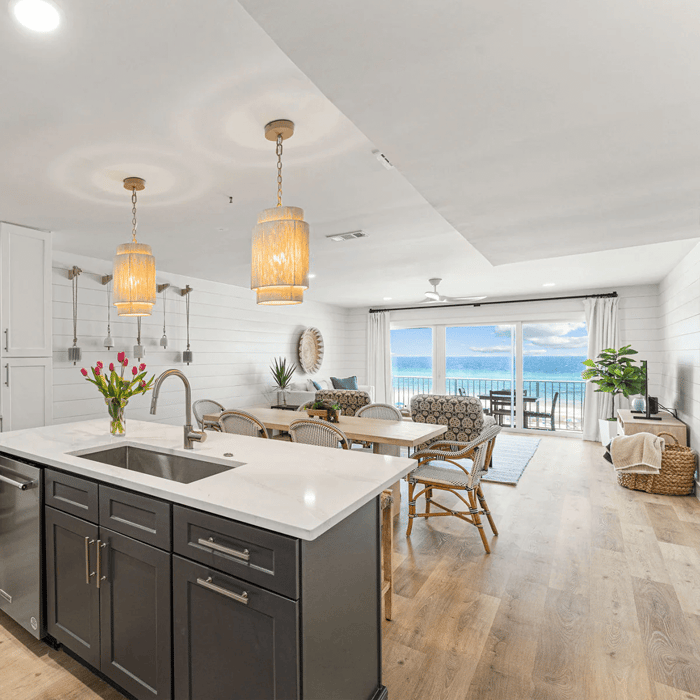Looking for eco-friendly hardwood flooring solutions that combine beauty and sustainability? This article explores how innovative hardwood options not only reduce environmental impact but also bring natural elegance to any space. From responsibly sourced wood to non-toxic finishes, these solutions provide durability and style while respecting the planet. Dive in to discover flooring choices that align with your eco-conscious lifestyle and offer lasting value for your home.
As more homeowners and designers prioritize sustainability in their projects, eco-friendly hardwood flooring solutions have emerged as a popular choice. With the growing awareness of environmental issues, choosing flooring that is both beautiful and sustainable is essential. This article will delve into the various eco-friendly hardwood flooring options available, highlighting sustainable sourcing practices, non-toxic finishes, and the types of engineered hardwood flooring that combine aesthetic appeal with environmental responsibility.
Why Choose Eco-friendly Hardwood Flooring?
Environmental Benefits
Choosing eco-friendly hardwood flooring can significantly reduce your home's environmental impact. Traditional hardwood flooring often contributes to deforestation and habitat destruction. In contrast, eco-friendly options prioritize sustainable practices, such as responsible harvesting and maintaining forest ecosystems. By opting for eco-friendly hardwood, you support companies committed to environmental stewardship and conservation.
Health and Safety Advantages
Eco-friendly hardwood flooring also offers health benefits for your family. Traditional flooring products can emit volatile organic compounds (VOCs), which may lead to respiratory issues and other health problems. In contrast, eco-friendly hardwood flooring utilizes non-toxic adhesives and finishes, significantly minimizing your exposure to harmful chemicals. This creates a healthier indoor environment, particularly important for families with young children or individuals with allergies.
Longevity and Durability
One of the most significant advantages of eco-friendly hardwood flooring is its durability. Engineered hardwood, for example, is designed to withstand the test of time while providing the aesthetic appeal of solid wood. Eco-friendly flooring options are crafted with high-quality materials and finishes that enhance their lifespan, reducing the need for frequent replacements and, in turn, minimizing waste.
Sustainable Sourcing Practices in Hardwood Flooring
Certified Wood Options
When considering eco-friendly hardwood flooring, it’s crucial to look for certified wood options. Certifications like the Forest Stewardship Council (FSC) and the Program for the Endorsement of Forest Certification (PEFC) ensure that the wood is sourced from responsibly managed forests. These organizations promote sustainable practices that protect biodiversity and wildlife habitats while supporting local communities. By choosing certified wood, you can rest assured that your flooring is contributing to global sustainability efforts.
Reclaimed and Salvaged Wood
Reclaimed and salvaged wood is another excellent option for eco-conscious homeowners. This wood is sourced from old buildings, barns, and other structures, giving it a unique character and history. Using reclaimed wood helps reduce waste and lessens the demand for new timber, making it an environmentally friendly choice. Plus, it adds a distinctive charm to your home that new wood simply cannot replicate.
Local and Regional Sourcing
Opting for locally and regionally sourced hardwood flooring can significantly reduce your carbon footprint. Transportation emissions are a significant contributor to climate change, and selecting wood from nearby forests minimizes the distance it must travel to reach your home. Supporting local businesses also helps strengthen your community's economy and fosters sustainable practices in your region.
Non-toxic and Eco-friendly Finishes
Low-VOC and Zero-VOC Options
The finishes used on hardwood flooring can significantly impact indoor air quality. Many traditional finishes contain high levels of VOCs, which can off-gas harmful chemicals into your home. Fortunately, there are low-VOC and zero-VOC options available that offer the same protection and beauty without compromising health. By choosing finishes that prioritize safety and sustainability, you can create a healthier living environment for your family.
Natural Finishes
Natural finishes, such as oils and waxes, are excellent alternatives to conventional coatings. These products are derived from plant-based materials and are free from synthetic chemicals. They penetrate the wood, enhancing its natural beauty while providing protection against moisture and wear. Natural finishes are often easier to maintain and reapply, making them a practical choice for eco-conscious homeowners.
Advantages of Non-toxic Finishes
Non-toxic finishes not only improve indoor air quality but also contribute to the longevity of your flooring. They typically require fewer maintenance products and can be refreshed easily, extending the life of your hardwood. Additionally, many non-toxic finishes are biodegradable, ensuring that they won’t harm the environment once disposed of.
Types of Eco-friendly Hardwood Flooring
Bamboo and Cork Alternatives
Bamboo and cork are popular eco-friendly flooring alternatives that offer unique benefits. Bamboo is a fast-growing grass that can be harvested sustainably without harming the plant. It is incredibly durable and resistant to moisture, making it an ideal choice for various environments.
Cork, harvested from the bark of cork oak trees, is another sustainable option. The harvesting process does not harm the tree, allowing it to continue growing and producing cork for decades. Cork is naturally resistant to mold and mildew and provides excellent insulation, making it an energy-efficient choice for flooring.
Engineered Hardwood
Engineered hardwood is a versatile and eco-friendly flooring option that consists of multiple layers of wood. The top layer is typically made of solid hardwood, providing the authentic look and feel of traditional flooring. The underlying layers are constructed from less expensive and more sustainable materials, which reduces the demand for solid hardwood.
Engineered hardwood is more stable than solid wood, making it less prone to warping and swelling in response to humidity changes. This durability translates to a longer lifespan, which is an essential consideration for eco-conscious homeowners looking to minimize waste.
Durable Hardwood Choices
Certain hardwood species are known for their durability and sustainability. Oaks, maples, and hickories are popular choices for engineered hardwood flooring due to their strength and resistance to wear. These woods are often harvested from sustainably managed forests, ensuring that your flooring choice aligns with eco-friendly practices. Their longevity means fewer replacements, reducing the overall environmental impact of your flooring.
Eco-friendly Installation and Maintenance Tips
Sustainable Installation Methods
The installation process of hardwood flooring can also have environmental implications. Eco-friendly installation methods, such as using floating floors or adhesives that contain low levels of VOCs, can minimize your impact on indoor air quality and reduce waste. Choosing a qualified installer who understands eco-friendly practices can ensure that your flooring is installed with sustainability in mind.
Eco-friendly Maintenance
Maintaining your hardwood flooring with eco-friendly products is crucial for preserving its beauty and longevity. Opt for green cleaning solutions that are safe for your family and the environment. Avoid harsh chemicals that can damage the finish or harm indoor air quality.
In addition, consider water-based sealants for any refinishing projects, as they are typically lower in VOCs compared to traditional solvent-based options. Regular maintenance, such as cleaning and refinishing, will prolong the life of your flooring and reduce the need for replacements.
Cost Considerations and Long-term Value
Initial Investment vs. Long-term Savings
While eco-friendly hardwood flooring may have a higher initial cost than conventional options, the long-term savings often outweigh the upfront investment. Eco-friendly products tend to be more durable, reducing the frequency of replacements. Moreover, energy-efficient options like cork can help lower heating and cooling costs, contributing to overall savings over time.
Tax Incentives and Rebates
Many regions offer tax incentives and rebates for homeowners who choose eco-friendly home improvements, including flooring. Check with your local government to see if any programs are available that could help offset the costs of your sustainable flooring investment.
Durability and Lower Replacement Frequency
Investing in eco-friendly hardwood flooring ensures that you select materials designed for longevity. Engineered hardwood, for instance, provides enhanced stability, reducing the likelihood of warping or damage. This durability translates to fewer replacements, ultimately saving you money and minimizing waste.
Choosing eco-friendly hardwood flooring solutions is not just a trend; it’s a commitment to sustainability and responsible living. By opting for sustainable sourcing practices, non-toxic finishes, and durable engineered hardwood options, you can create a beautiful home while minimizing your environmental impact. As you explore your flooring choices, remember that investing in eco-friendly solutions contributes to a healthier planet and a more beautiful living space. Make the switch to eco-friendly hardwood flooring today and enjoy the benefits for years to come.




